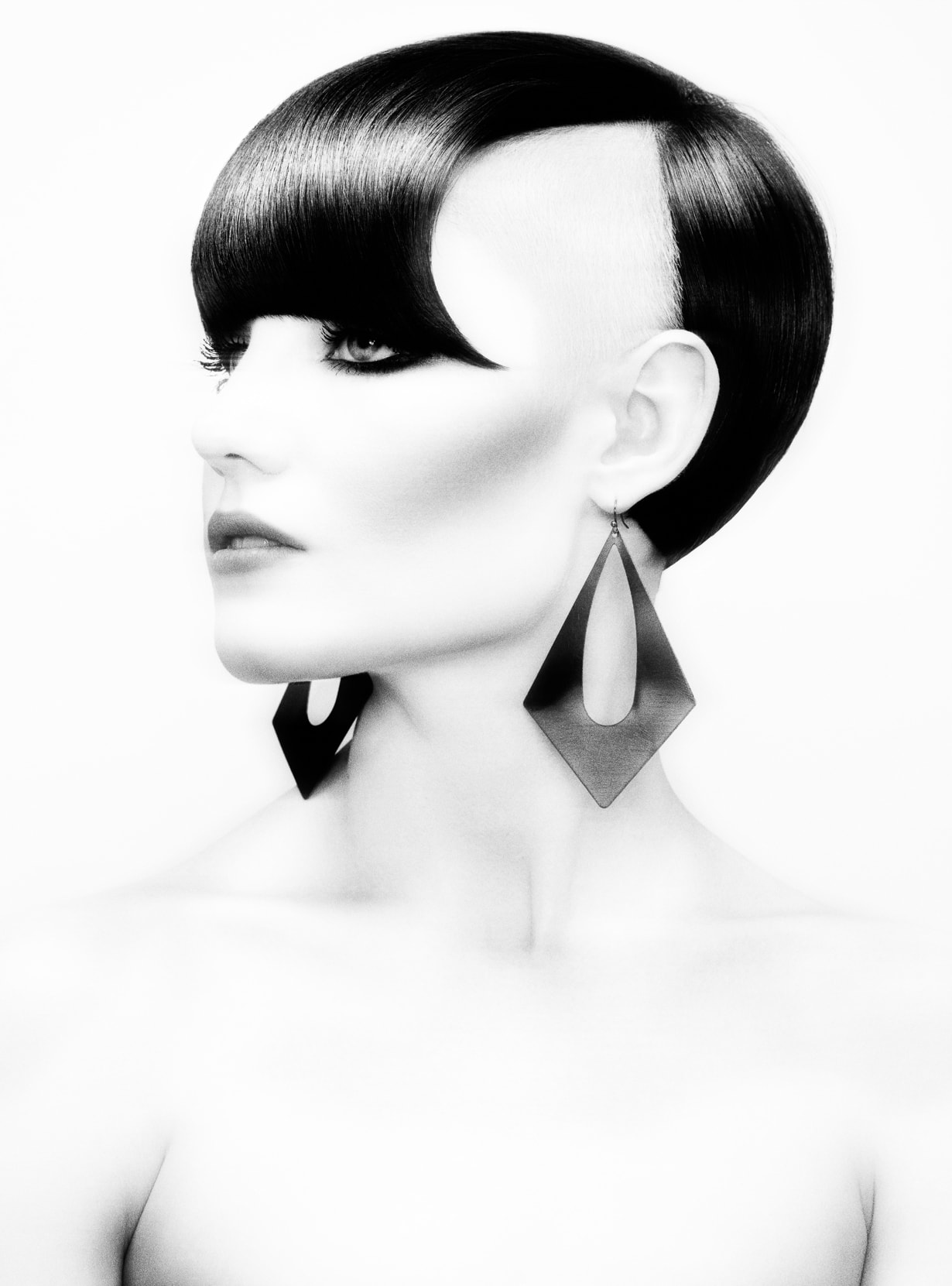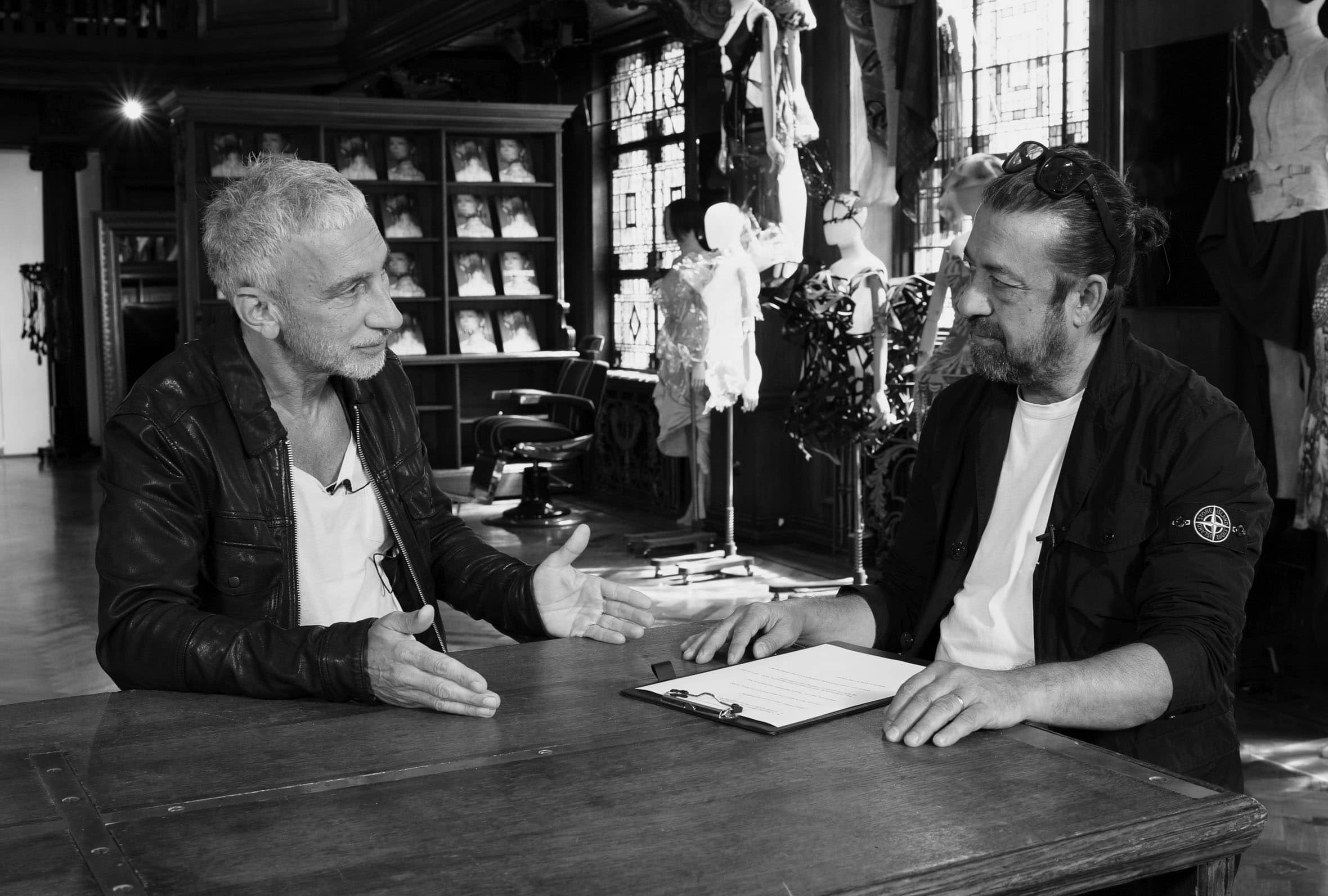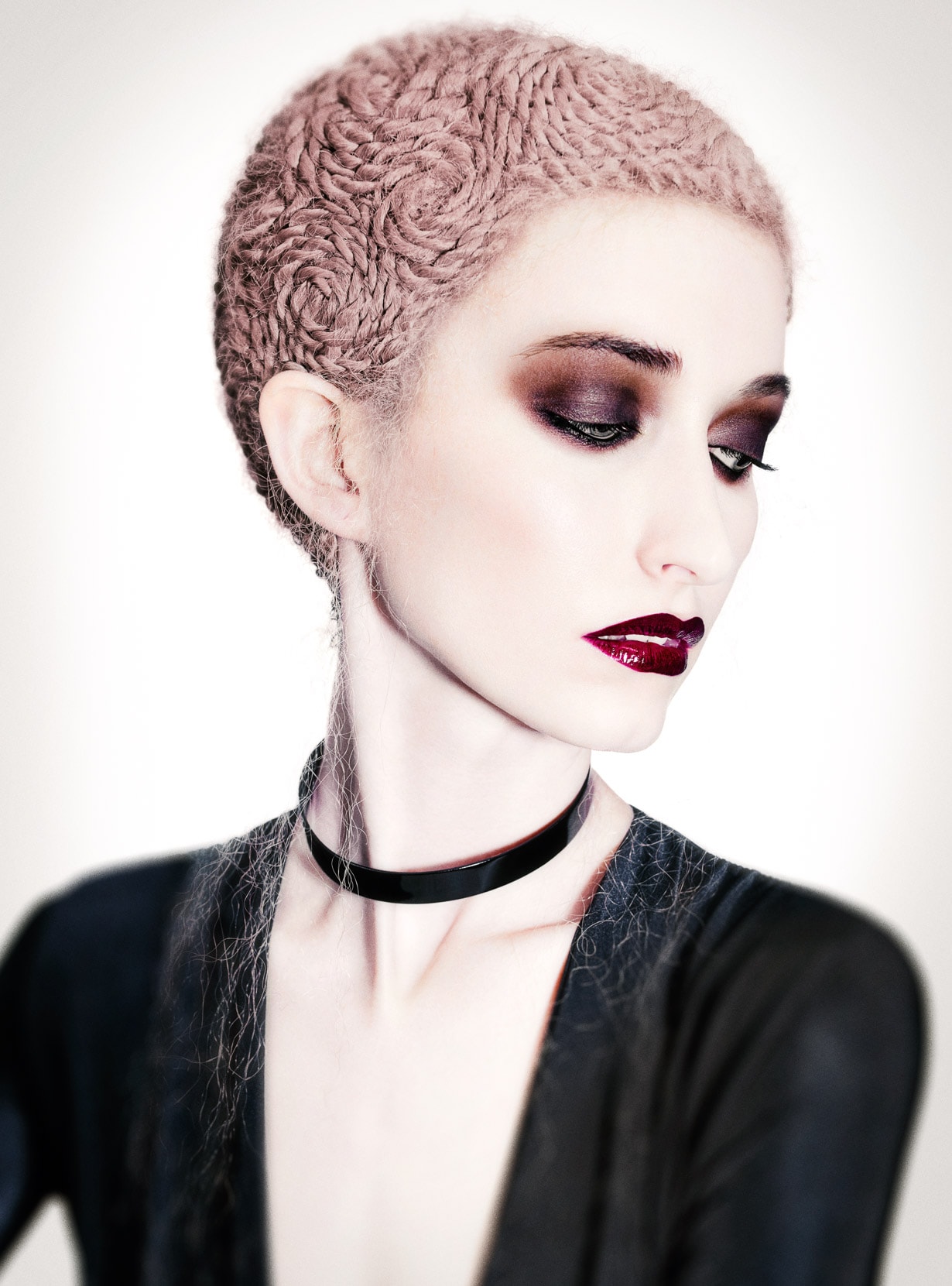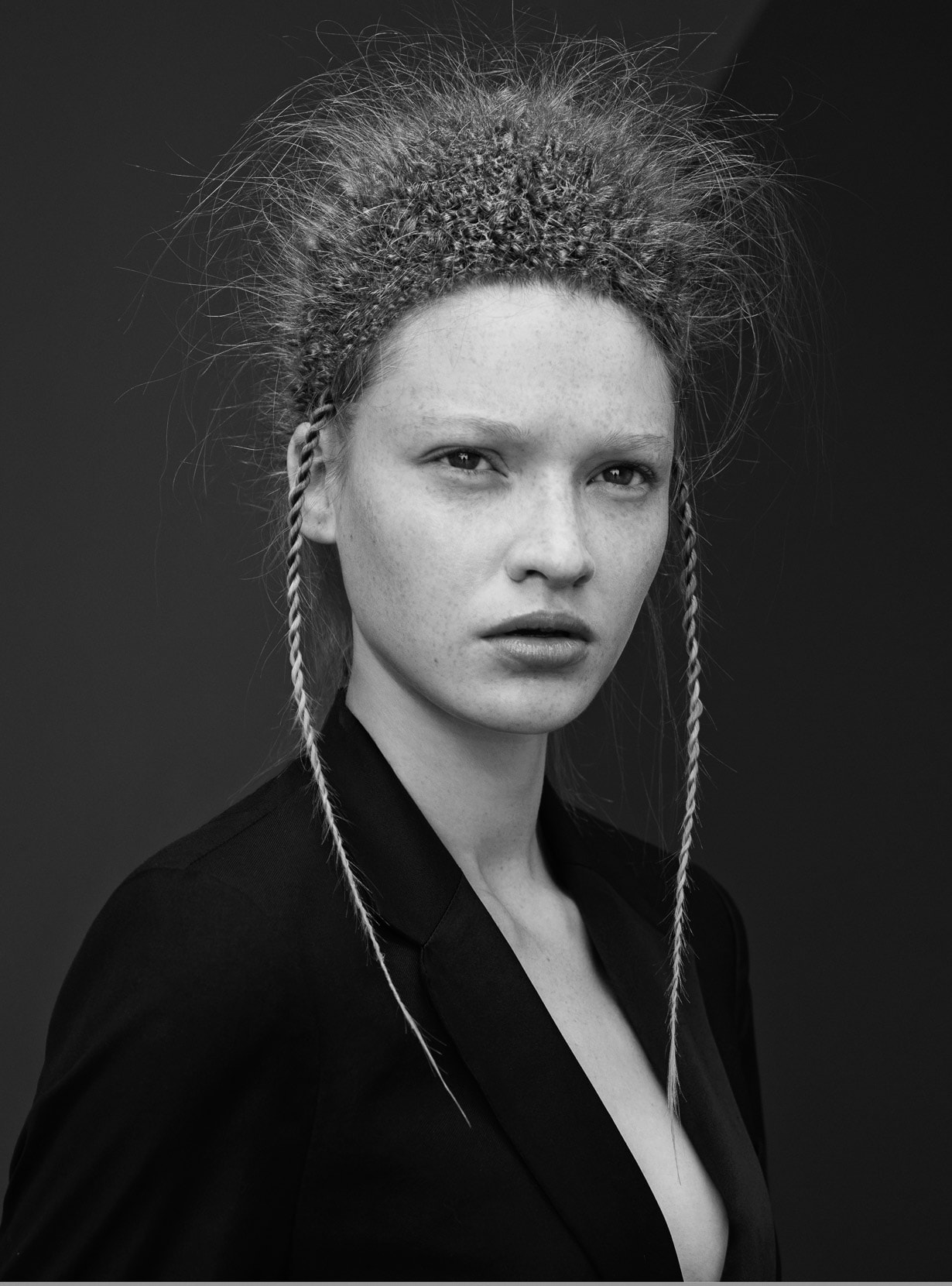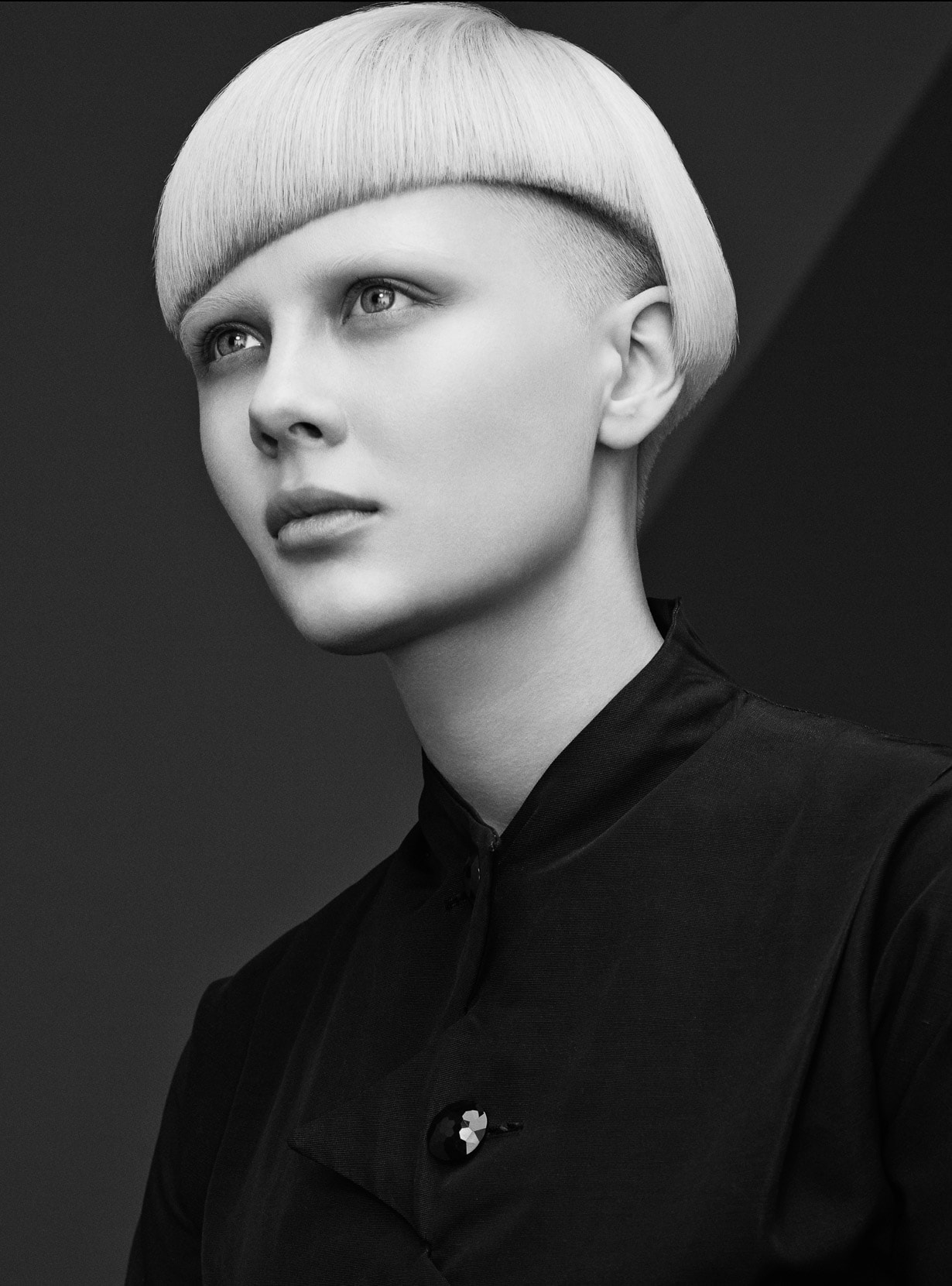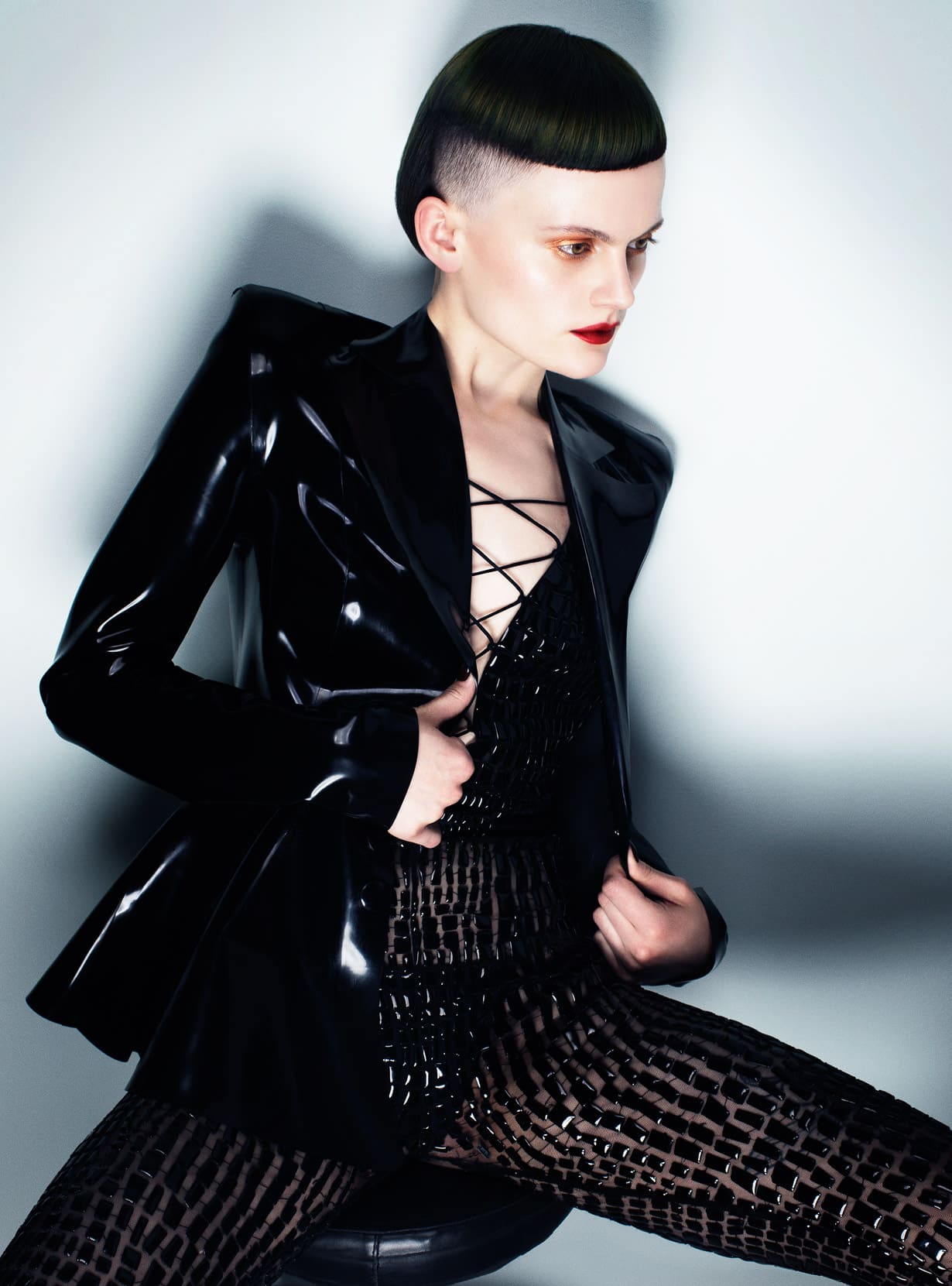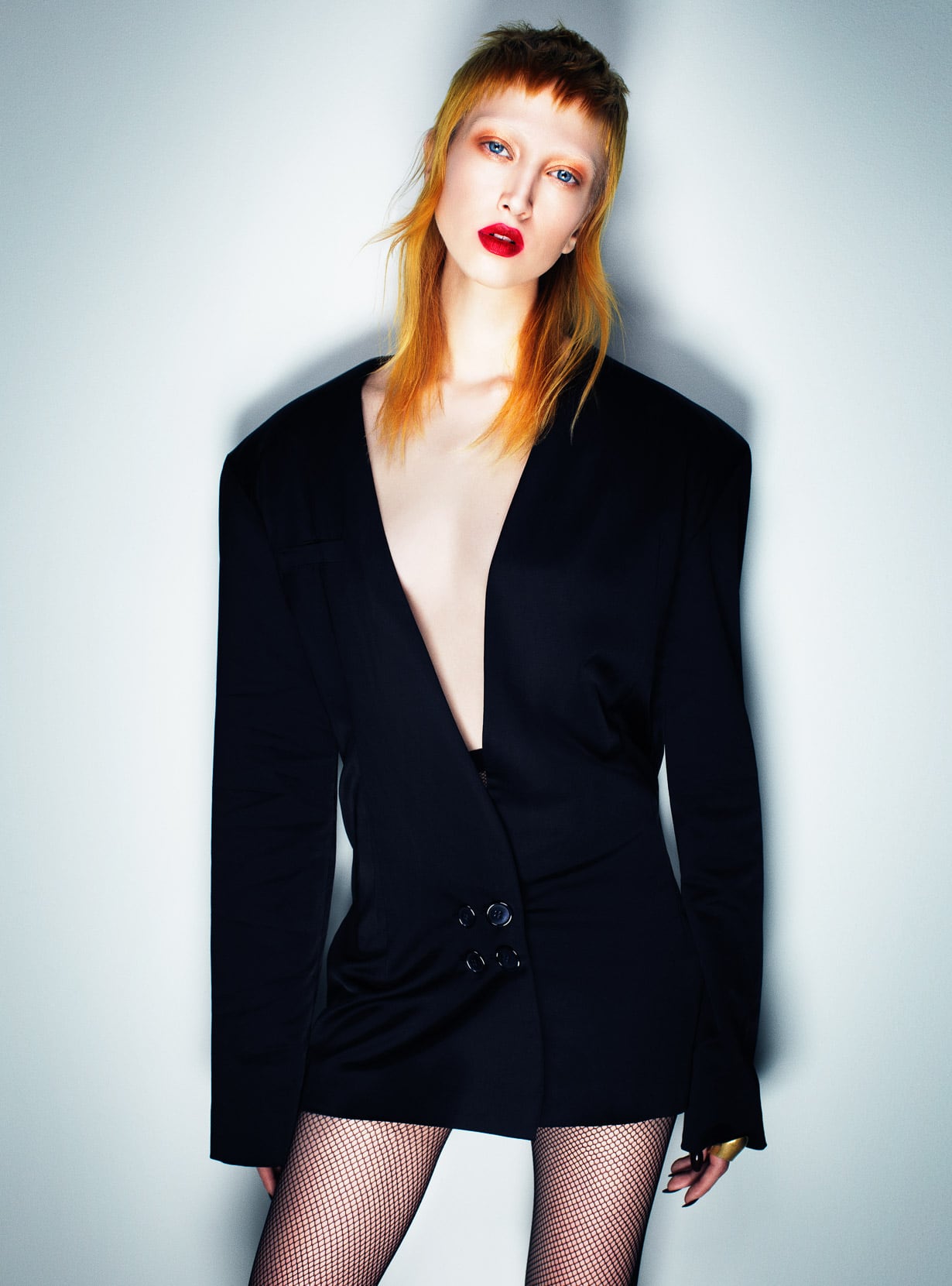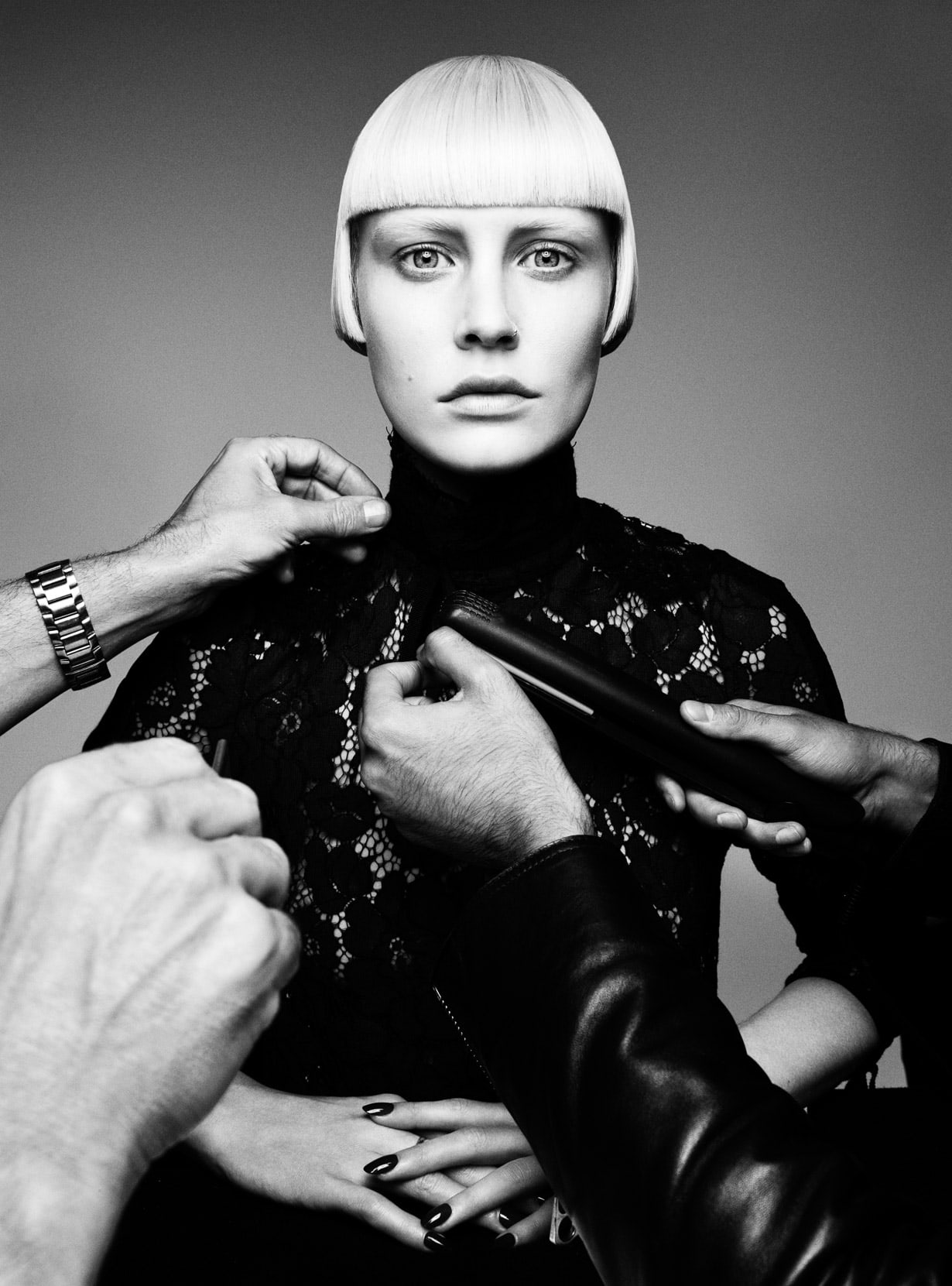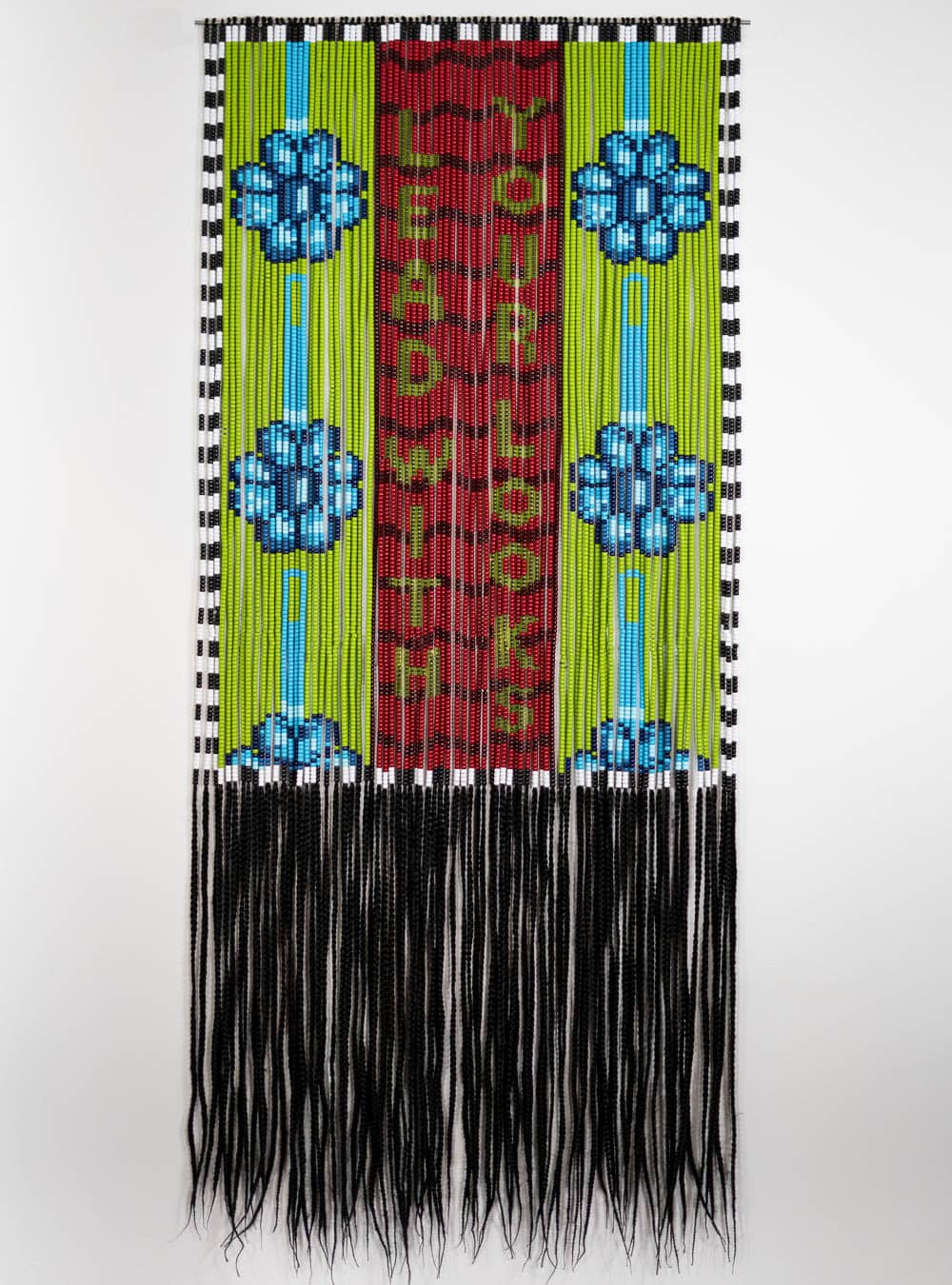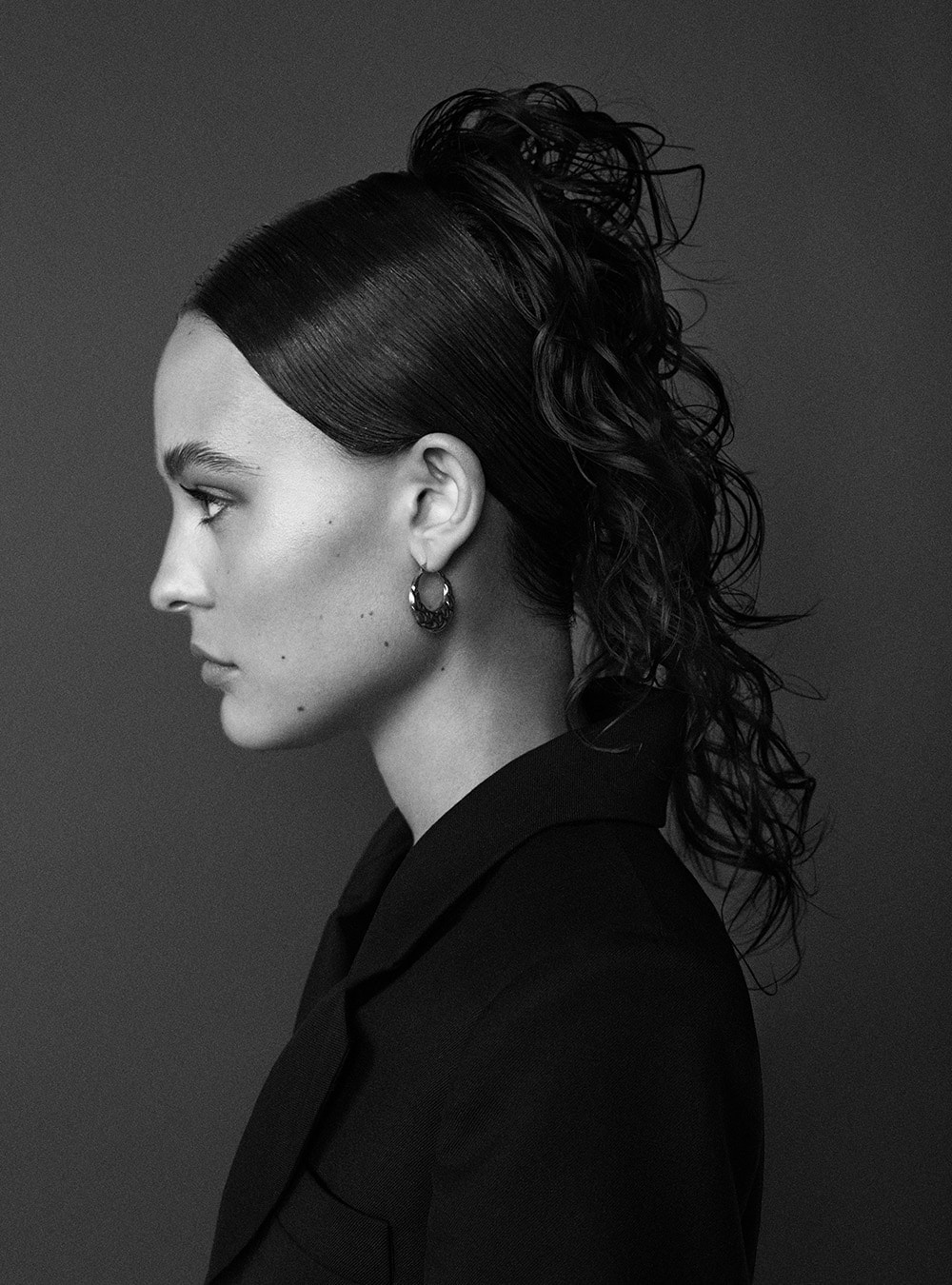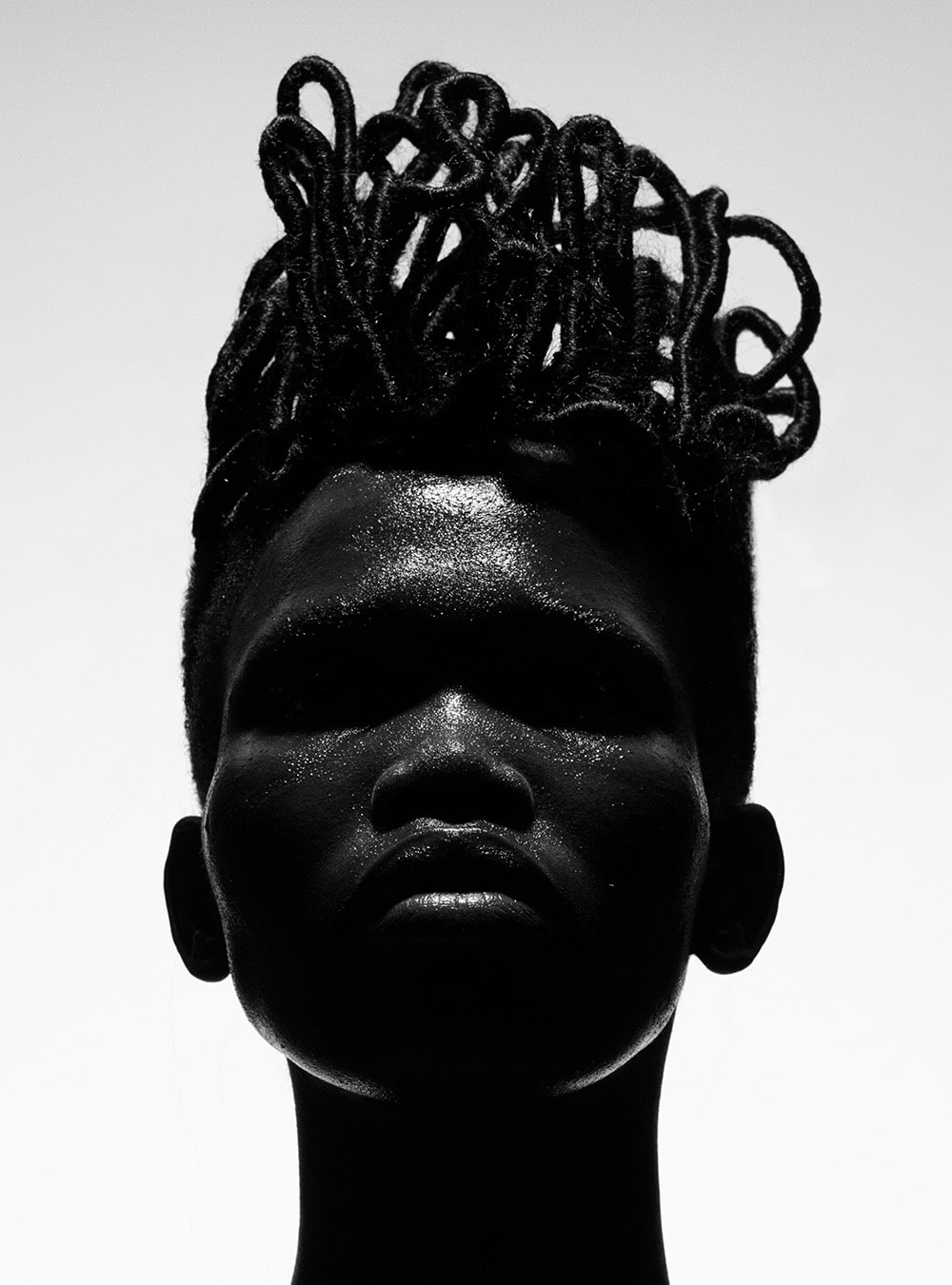PEOPLE: Akin Konizi speaks to Anthony Mascolo about developing a signature approach, the real inspirations behind his work, and the joys and challenges of teaching his craft to his sons
Interview: Anthony Mascolo
Images: Jenny Hands, Matthew Shave, Andrew O’Toole
Special Thanks to Akin Konizi
Known for his precision cuts and bold geometric work, London hairdresser Akin Konizi is the creative force behind HOB Salons. A four-time winner of the coveted British Hairdresser of the Year award, Konizi is frank about the fact that his entry into the world of hair was little more than a lucky accident. Originally on course to study at the London College of Fashion, a chance visit to his cousin’s new salon in London’s east end turned his world upside down. “It was like nothing I’d ever seen,” he recalls, “the girls, boys, music and décor… it was like being at a club! I spent a few hours in there and these guys were really into their work, it wasn’t just blow-drying or setting or whatever, these guys where really into it. I thought, ‘this might be something I want to do’.”
After training at Alan International, Konizi co-founded HOB in the mid-80s, together with Clive Collins and Paul Simbler. Now boasting 25 salons and two academies, he continues to lead the company’s creative vision, splitting his time between shows, salons and creating new collections.
He spoke to Anthony Mascolo about developing a signature approach, the real inspirations behind his work, and the joys and challenges of teaching his craft to his sons.
Anthony Mascolo: Take us back to the beginning. How did you first get into hair?
Akin Konizi: The reality of the situation is that I absolutely fell into it. I’d rather give you the truth – because that’s going to be far more relevant when it comes to drawing people into our industry than to tell people that it was so romantic and amazing. In reality, my original passion was clothing. My parents were immigrants – my dad was from Cyprus – and in the dry cleaning trade. So I grew up as a mini dry cleaner, from about five years old I developed a real passion for fashion, clothes and cloth. I was dry cleaning, I was pressing, I mean I couldn’t even really reach but I was loving it. It became something that I really wanted to do, be in the fashion and clothing industry. So eventually I enrolled at the London College of Fashion.
AM: So you went from cutting cloth to cutting hair…
AK: To me, hair is cloth. Some people think that hair is like an organ or a limb – it isn’t. It’s cloth. It’s a hat. A furry, hairy hat. So what happened was – while I was waiting for the London College of Fashion course to start, there was a real revolution going on in hairdressing at that time, which I’m sure you remember. It was ’79 and it felt like a new beginning – all of a sudden we were going from barbers and women’s hairdressers to this unisex thing. My cousin did a diploma course at Alan International and then opened this salon on Mare Street in the east end, which was like nothing I’d ever seen. The girls, boys, music and décor… it was like being at a club! I spent a few hours in there and these guys were really into their work, it wasn’t just blow-drying or setting or whatever, these guys where really into it. I thought, ‘this might be something I want to do’. I went for an interview at Alan International but then didn’t hear from them for three months, I think they thought I was a little outspoken! Eventually they got back to me, and it was the best thing that could have happened because I was in an academy environment, which is even more creative, watching educators all day, plaiting and blow-drying and cutting. I thought ‘I’m really enjoying this’. It came really naturally to me.
AM: When I got into hair I didn’t really have a choice, I didn’t even really like hairdressing until I was about 19.
AK: It was through your family wasn’t it?
AM: Yeah, my dad was a hairdresser, my uncle was a barber, my aunt was a hairdresser, my mum used to colour…
AK: But that’s how most kids fall into it!
“Some people think that hair is like an organ or a limb – it isn’t. It’s cloth”
AM: And now, is it fair to say you’ve developed a distinct signature in your work?
AK: I would say I have a commercial signature and an avant garde signature. And then there’s the signature I have chosen to pursue over the last 10-15 years, which is of precision and geometry. That’s my real passion.
AM: Is that what inspires you the most?
AK: I get a lot of inspiration from Sassoon, from you and what you’ve created, and from Alan International. I also get inspiration from the local salon. When people ask about inspirations I always used to say what I thought the right answer would be – trees and art. But really that’s crap. It comes from different things at different times. A lot of the time I’m inspired by the actual creation, the technique – how can I create this shape to be an anti-structure? How can I actually get this hair to stand up? Can I make this the best line it could ever be?
And then there’s another different skill set, which is actually understanding the material in front of you – which is not the hair but the client – their character, who he or she actually wants to be. I think the first objective for us as an industry has to be to serve that person’s objective, otherwise why else are they walking through the door? We need to think about the clients, not just about the hairdresser.
AM: We were raised to think about the clients.
AK: Absolutely, we are servants to the public. At the moment I’m learning a lot about the public and why they do what they do, how they spend, why they spend…
AM: It’s important to keep learning.
AK: When you’re not learning, you’re dying. I also realise that about my staff – if they’re not learning and progressing half an inch a day at least, if not a mile, then they’re leaving. So that inspires me in everything, I would rather not know something and learn, than think I know something and keep trying to confirm it.
AM: So now, with HOB, you’ve got the salons, academies, awards… what’s next?
AK: When I go on stage now at shows, half the time it’s cutting, but for the other half I just want to talk to people, because it’s not just about the cut but about their mind-set. There is a lot lacking in the social upbringing of youngsters, let alone of hairdressers, that we as an industry can potentially still uphold and help with. My son is now working at HOB, he’s really developing because he was quite shy, it’s really bringing him out of his shell and giving him lots of new skills.
AM: It’s the same with my son. It’s great being able to bring them into the business and let them develop. I don’t teach mine a lot, the others do. It’s difficult to teach him because he doesn’t really want to listen, but he watches me a lot and soaks it all up.
AK: There’s a danger of that with your kids isn’t there. You start getting involved, saying ‘you’re doing it wrong’. My younger son, who is 14, has started barbering. He has his own clientele at school! I’ve tried to teach him some layering but getting him into the academy to learn is impossible. He thinks that he can just learn from the internet, from YouTube. I’ve just said – fine, get on with it. When you’re ready, come and ask me.
AM: Would you say that social media has taken away that interaction a bit?
AK: Yeah but you know what, these social media people believe that actually it’s bringing us closer together, so that we are able to deliver a more personal service. More personal communication. But actually, I think it’s completely the opposite.
AM: Our industry is one of the only industries that a computer can’t do.
AK: I had a row with someone about this the other day actually – you can get a haircut through the internet. Look at what’s on social media now. All the women have long hair. So actually, you’re not getting a haircut because of social media. So, in a way it’s happened. I’ve always worried what the future of the industry holds. Because if you go back a few centuries hair was very intricate. Then it became the ‘wash, shampoo and set’, then the ‘cut and blow’ and then just ‘wash and wear’. I always figured that we would eventually get to the point where all men would have a crop and all women would have a ponytail. Like Gattaca!
AM: But if you think about the early 70s, just before punk, everything was disco – but then just like that – it breaks, people rebel. And hair plays a really important part in that rebellion.
AK: I’m hoping there’s going to be another rebellion!
- ANTHROPOLOGY OF HAIR
- ANTHROPOLOGY OF HAIR
- ANTHROPOLOGY OF HAIR
- ANTHROPOLOGY OF HAIR
- ANTHROPOLOGY OF HAIR
